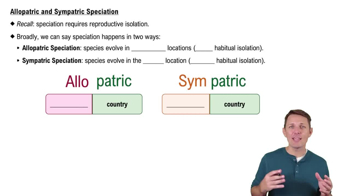Ecotourism helps conserve wildlife by increasing the value of wildlife conservation for local people. In Argentina, the world's largest breeding colony of Magellanic penguins is visited by thousands of tourists every year, causing the penguins to become habituated to the presence of people. Has ecotourism affected the penguins' ability to respond to stressors? Has it affected the penguins' secretion of corticosterone? If penguins in a colony are habituated to the presence of tourists, how would their corticosterone response to being visited by tourists compare to that of penguins in a colony not previously exposed to tourists?
Ecotourism helps conserve wildlife by increasing the value of wildlife conservation for local people. In Argentina, the world's largest breeding colony of Magellanic penguins is visited by thousands of tourists every year, causing the penguins to become habituated to the presence of people. Has ecotourism affected the penguins' ability to respond to stressors? Has it affected the penguins' secretion of corticosterone? Suggest at least two distinct physiological mechanisms that could be responsible for the difference in corticosterone response to a stressor in habituated and non-habituated penguins.
 Verified step by step guidance
Verified step by step guidance
Verified video answer for a similar problem:
Key Concepts
Habituation

Corticosterone
Physiological Mechanisms of Stress Response

Ecotourism helps conserve wildlife by increasing the value of wildlife conservation for local people. In Argentina, the world's largest breeding colony of Magellanic penguins is visited by thousands of tourists every year, causing the penguins to become habituated to the presence of people. Has ecotourism affected the penguins' ability to respond to stressors? Has it affected the penguins' secretion of corticosterone? Scientists tested the hypothesis that penguins habituated to tourists have a blunted stress response overall. They examined the corticosterone response of habituated and non-habituated penguins to another stressor—that of being captured and restrained for 30 minutes. They found that both habituated and non-habituated penguins secreted corticosterone in response to being captured and restrained, but that the level of corticosterone after 30 minutes differed between the groups. The results are shown here (* means P<0.05). Was the hypothesis supported? Explain.
Ecotourism helps conserve wildlife by increasing the value of wildlife conservation for local people. In Argentina, the world's largest breeding colony of Magellanic penguins is visited by thousands of tourists every year, causing the penguins to become habituated to the presence of people. Has ecotourism affected the penguins' ability to respond to stressors? Has it affected the penguins' secretion of corticosterone? In response to a visit by tourists, which penguins—habituated or non-habituated—would show a greater change in expression of genes for liver enzymes involved in converting amino acids to glucose? Explain.
